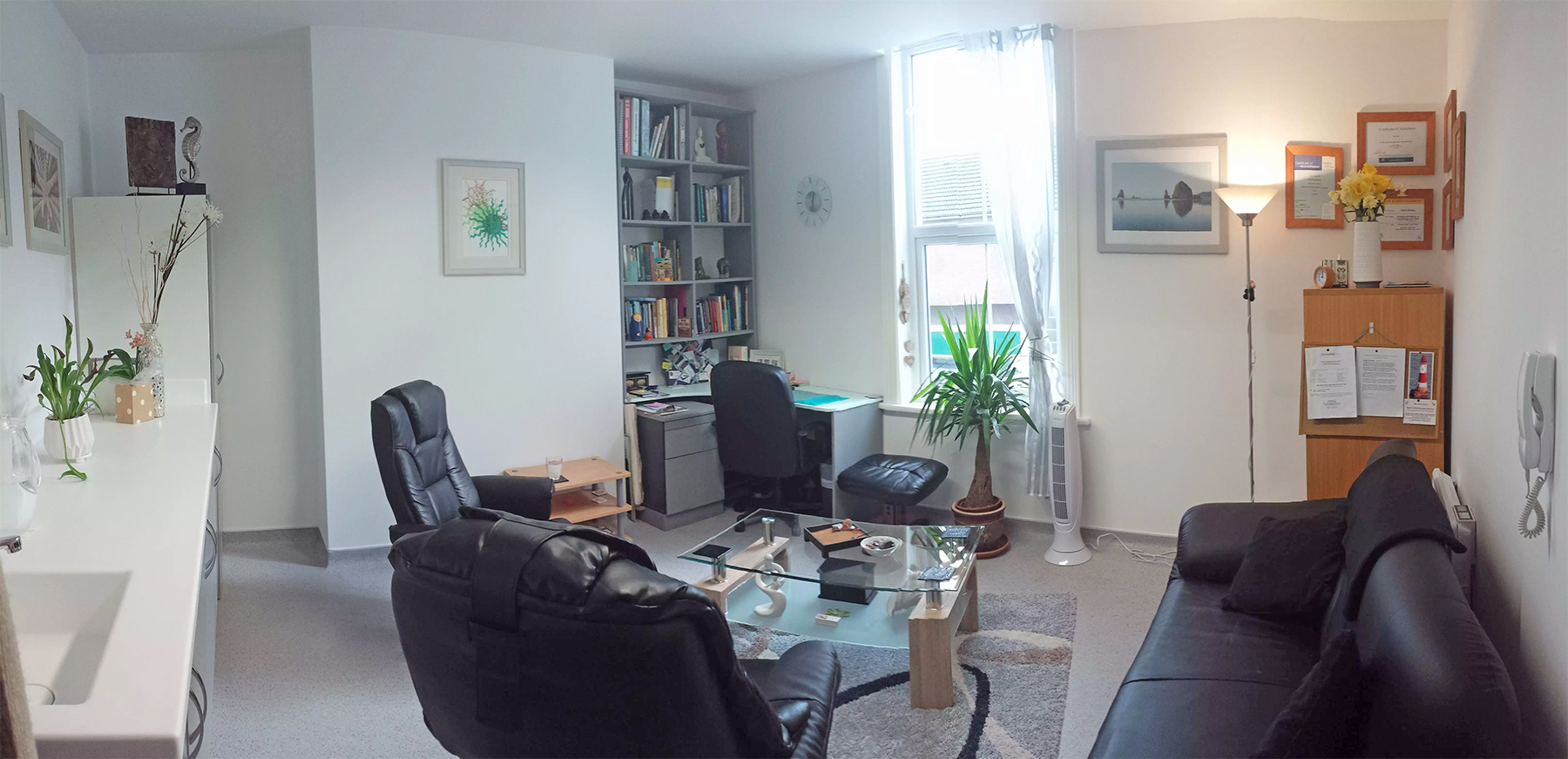Counselling & Trauma Therapy
Welcome
Claire Pooley is trained in a variety of psychological approaches as well as a Registered Mental Health Nurse (1983). This afford her clients the opportunity of therapy/treatment choices. She has been a Counsellor for 27 years, a Clinical Supervisor for 23 years, has been a Tutor on various Counselling and Supervision courses and more recently a Traumatologist and EMDR Practitioner. Claire is Senior Accredited with the BACP (British Association of Counsellors and Psychotherapists), registered EMDR UK and Ireland and the Nursing and Midwifery Council. She offers bespoke training courses on topics of Trauma, Abuse and PTSD, Mental Health including Suicide, Self-Harm and Clinical Supervision..


Claire Pooley
BACP Senior Accredited Plurist Therapist,
Individual and Group Supervisor
Traumatologist, EMDR Practitioner, RMN
Frequently asked questions
What is Traumatology?
Psychological Trauma Therapy (see trauma examples below). Tailoring your therapy for you by recognising your individual needs and empowering you to choose and direct your therapy treatment.
What is PTSD?
Post-Traumatic Stress Disorder – Psychological trauma usually occurs after a particularly distressing event or series of enduring events that are life-threatening or include a danger of injury so severe that the person is horrified, feels helpless and experiences a physiological alarm response during and shortly following the experience.
Anyone who has been subjected to extreme physical or psychological stress can be traumatised. General distress such as situations of divorce, exam failure and loss of job does not cause PTSD.
What is Complex PTSD?
The traumatic events are repetitive, mostly expected and predictable (such as childhood sexual abuse), but the victim feels helpless to stop it. It more likely occurs during critical windows of development in childhood and is interpersonal in nature, i.e. the abuse is well known.
What symptoms may I notice? They are similar to those when frightened or when shocked:
Intrusive thoughts, Hypervigilance – an extreme sense of danger, Forms of Avoidance, Nightmares, Flashbacks, Forms of Dissociation, Fears & Phobias, Obsessive Compulsive Behaviours, Depression, Anxiety, Sleep difficulties, Self-injury, Feelings of shame, Social withdrawal or sense of disconnection, Emotional numbing or Dysregulation, Feelings of despair and hopelessness, Loss of sense of spirituality, Negative view of the world, Suicidal ideation, Self Esteem and body image difficulties, Poor concentration or focus, Poor motivation or loss of interest, Loss of sense of control, Difficulty making decisions, Relationship problems including intimacy, sexuality and sexual difficulties, Other related mental health difficulties and diagnoses, Physical manifestations, i.e. headaches, chronic fatigue, and physical trauma, i.e. through accidents and service work., Using substances to numb out or deal with the experience/s
PTSD Treatment and Therapy will include:
Psycho-education; During a traumatic event, the brain’s alarm system is activated for ‘fight, flight, freeze or appease’. During this reaction, the brain’s other mechanisms are not so accessible, which is why it is difficult to reason or, sometimes, remember the events. This alarm would only be activated during the time of trauma but sometimes it remains switched on, which can cause the symptoms listed above. In order to ensure the brain returns to its resting state, a variety of safety and stabilisation techniques will be required.
Safety and Stabilization;
Techniques to address the identified symptoms which may include, breathing exercises, guided visualisation, relaxation, sleep management, flashback and nightmare management, ‘here and now’ exercises and mindfulness.
Heartmath – a biofeedback technique which picks up on your heart rate, breathing rate and brain waves and assists you to attain a mindfulness place, offering you immediate feedback. Once safe and stable, therapy can commence. This is called the Window of Tolerance.
Therapies
EMDR Therapy – Eye Movement Desensitization and Reprocessing, is recommended as a safe trauma therapy by NICE, (National Institute of Clinical Excellence). It allows the person to access their experiences whilst stimulating the brain into a dream-like state, whilst awake and fully in control. During dreaming, we receive messages from our unconscious state when there is something unprocessed by our conscious mind. It may be the ‘stuckness’ or ‘block’ that limits our ability to move on from the trauma. By bilaterally stimulating the brain, we can access these un-processed thoughts and experiences, acknowledge, store them in the memory, where we can access the experience in a healthier way and move on. It is believed that EMDR accesses these blocks swiftly and safely as the person is guided to observe, rather than re-experience their event.
Trauma-Focussed CBT (Cognitive Behavioural Therapy), focusses on the traumatic experience. It is not possible to change what happened but the therapy can change what the person thinks about it, the world and their future. The therapist helps talks things through whilst ensuring the prevention of overwhelm. By talking it through, it help store the memories in the correct part of the brain – that was not available during the fight/flight experience. It works on the individual feeling safer and more in control of their feelings.
Rapid Rewind Therapy – A technique used to eliminate or reduce the impact of a traumatic event. It assists in viewing the event, from a distance, whilst being fully in control to switch the viewing to rapid rewind or fast forward. By changing some of the circumstances too, it affords the individual the chance to view it from a different perspective and change their responses to it.
IRRT – Exposure to the event/s through the imagination with a view to moving forward to changing the experience to a more acceptable viewing of the event/s through a current perspective. The individual will complete questionnaires between sessions and be self-aware of their effective coping strategies.
PE – Prolonged Exposure helps to confront safe but anxiety evoking situations in order to overcome PTSD symptoms with the central role of successfully processing the traumatic memory.
Fast Phobia Techniques – is similar to Rapid Rewind Therapy but works with fears and phobias.
Nightmare Protocols – a systematic approach to managing nightmares, therefore improving sleep
Flashback Protocols – a systematic approach to managing flashbacks
Therapies for general issues of Mental Health:
Humanistic Therapy – At the heart of the humanistic approach is the therapeutic relationship where Claire will work with empathy, congruence and unconditional positive regard to offer ways to integrate your thoughts, feelings and reflections on your difficulties. This will help you to develop a deeper and broader understanding and a healthier sense of self and feel empowered to move on, change, manage, or accept what is going on for you.
Solution-focussed Therapy (SFT) – focuses on the present and future circumstances and goals rather than past experiences. It does not target the symptoms and causes but is a goal-oriented therapy. It is often offered through the Employment Assistance Programmes as it is a short-term therapy.
Other therapies available on request:
Claire is also trained in EFT (Emotional Freedom Technique) and Matrix Re-Imprinting.
Clinical Supervision
Claire offers individual and group supervision which affords transformational learning and processing through creativity, collaborative conversation and exploring diverse ways of knowing and expression. It provides the openness, mindfulness and reflectiveness for the supervisee to see their work through the Formative, Normative and Restorative tasks of supervision ( Inskipp and Proctor) , using the 7-eyed model approach (Shohet and Hawkins’ )

